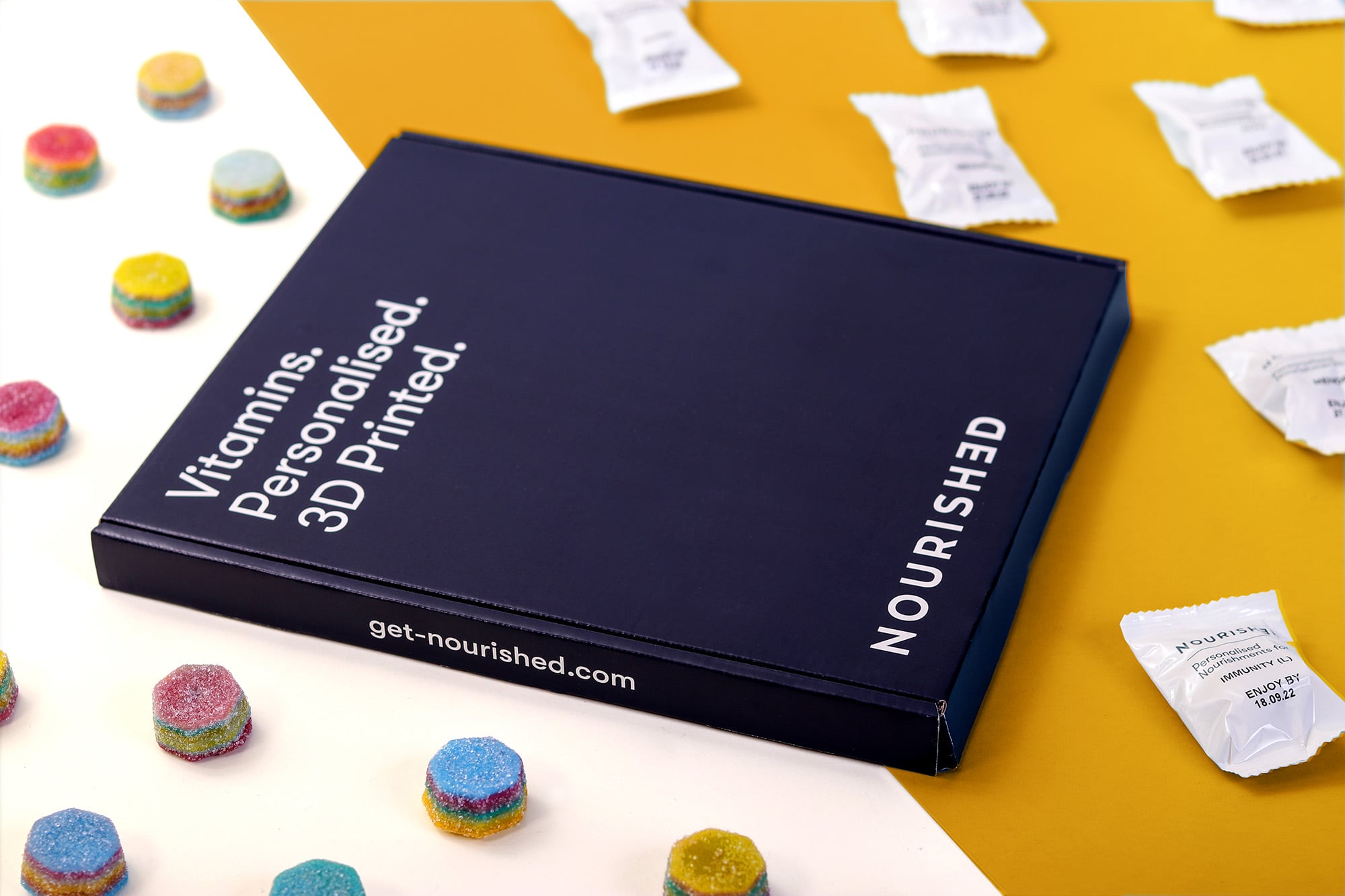Remedy Health, through its brand Nourish3d, uses 3D printing to create a seven-layer personalised chewable unique to each individual.
The nutrients that each individual required will be decided based on their answers to a diet and lifestyle-related questionnaire.
The service is currently active in the UK and US markets.
Through the investment, Suntory will bring in localised version of Nourish3d personalised nutrition service and products to the Japanese market.
The partnership between the two was sparked by Suntory’s intent to expand its health foods portfolio to include gummies.
“In the market of dietary supplements, I think it is now a transitional time in terms of the dosage formats that are used to deliver the active ingredients.
“Among the newer dosage formats, we think that gummy is one of the most promising materials, and there are already other companies that offer supplements in the form of gummies.
“However, Nourish3d is the only product which we know of that offers a personalised daily nutrient gummy combined with active ingredients,” Mikio Aoki, senior general manager of future business development department at Suntory told NutraIngredients-Asia.
“Its manufacturing process utilises 3D printing, which is also very unique and has the potential to promote global development of the future food style,” he added.
Gummies are commonly associated with confectioneries instead of health foods in Japan, but the company believes that the current popularity of gummy nutraceuticals in the US would influence the Japanese market eventually.
“There are some gummy supplements in the Japanese market, but its share is very limited.
“If you look at the US market, there are many transitioning from tablets to gummies. I expect that movement will come to Japan as well.”
He added that Nourish3d allowed users to take the required nutrients through a single chewable, which provided an ease of convenience.
As for personalised nutrition, he said that there were some start-ups providing such services and supplements in the form of tablets, but the sales were relatively small, and level of consumer awareness was low.
Localisation
At the moment, both companies are improvising Nourish3d personalised service and products to suit Japanese’ preference.
This include introducing flavours familiar to the Japanese consumers, such as Yuzu and watermelon, Aoki said.
Founder and CEO of Remedy Health, Melissa Snover, added that the company would work on creating a localized customer experience for the Japan market, such as evaluating if the existing questionnaires need to be changed.
“I think that we will also be working on how we can create the best customer experience. It will be different from what we do in the UK in the US.
“Because I think it's very new in Japan to do something totally customised, and so I think we will work really hard on the translation [of the service], and also how can we make the customer journey really intuitive and very well suited to the lifestyle.
“We need to make sure that we are asking the right questions, to be able to get the right information to make the best possible recommendation. And those questions will need to be localized and there will need to be new questions.
“And so, the entire AI algorithm that sits behind our recommendation engine will also be modified to be able to make that fit for purpose for the Japanese market,” Snover explained.
The company is in the midst of conducting consumer test on all aspects of the personalised service and products.
“We are testing if they like the taste, the format, mouthfeel, the consultation questions, do they feel that the customer journey is good.
“It's more than just the taste profile. It's more about the whole experience because this needs to be really working all together very well.”
Over 60 billion combinations
According to Snover, with the company’s 3D printing technology, it is now able to create 60 billion types of products using over 50 nutrients.
“Our printers are proprietary, we developed and built them by ourselves, and they are unique in the world.
“They have what's called a haptic combination technology inside them. This allows them to receive information digitally, and then they are able to select the correct ingredients for the specific order.
“And then the printer deposits the correct amount of each material in layers via 3D printing in order to create seven-layer stacks which are unique to the individual,” Snover said.
Majority of the company’s business – 95 per cent of it – comes from personalised nutrition, while the remaining comes from the sale of its supplements known as Life Stacks.
These products are made with the same 3D printing technology and are designed to address specific pain points and health needs, including post-exercise recovery etc.
The company currently manufactures its products in the UK but is also looking to manufacture in the US in year 2023.
As for Japan, Snover said that while it would be the most ideal to manufacture locally in Japan, the companies would look into this again after the consumer test was completed.





